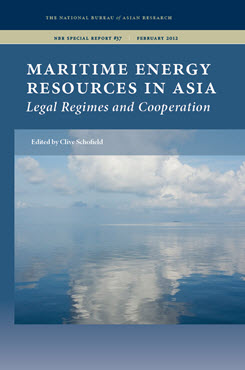Maritime Cooperation in a Functional Perspective
This essay argues that effective management of maritime resources, as well as the preservation and protection of the marine environment in enclosed and semi-enclosed seas such as the Gulf of Thailand, South China Sea, and East China Sea, is possible only if the littoral states cooperate with one another in the discharge of their obligations and the pursuit of their rights.
EXECUTIVE SUMMARY
This essay argues that effective management of maritime resources, as well as the preservation and protection of the marine environment in enclosed and semi-enclosed seas such as the Gulf of Thailand, South China Sea, and East China Sea, is possible only if the littoral states cooperate with one another in the discharge of their obligations and the pursuit of their rights.
MAIN ARGUMENT
International cooperation is an essential feature of the modern world. Many activities of primary importance to the global community could not function, or function well, in its absence. The old unilateralist ethic that underpinned the law of the sea is giving way to the demands of functionally dictated cooperative imperatives required by contemporary appreciation of the task of optimum management of resources and the preservation and protection of the marine environment. International law, in turn, is responding to these demands by strengthening the normative foundation for cooperation at sea, thus developing the basic provisions applicable to the littoral states of enclosed and semi-enclosed seas.
POLICY IMPLICATIONS
- Functionally required maritime cooperation should be seen as a natural aspect of a state’s responsibilities in regard to proper ocean management and environmental protection. The nature and level of cooperation should always be determined according to apolitical factors.
- Cooperation between states in an area where there is a marked degree of asymmetry of capacity should always be encouraged, but on the basis of mutual respect and regard for inalienable state rights.
- There are no legal barriers to cooperation in cases where it is agreed that any activity is without prejudice to the rights of the states concerned, whether boundaries between the states have been determined. Indeed, international law requires states to establish a temporary regime for maritime management in the absence of a boundary.
- In the South China Sea and East China Sea, any cooperative arrangement that requires the participation of Taiwan must find some means of securing Taiwan in order to be fully effective. There is no shortage of examples and precedents that can assist with this matter.


